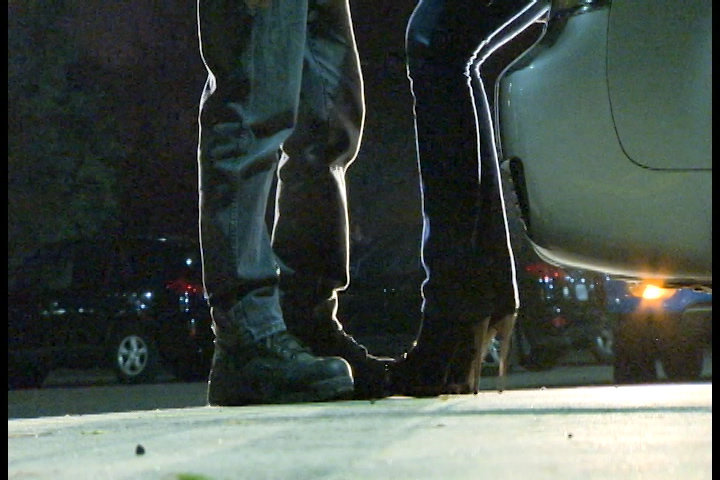Feb. 22 is National Human Trafficking Awareness Day, and the Mohawk Council of Akwesasne, its department of community social services and a former OPP police officer, are doing their part to raise awareness.

Throughout the month, Patrick Dessault, the family well-being coordinator at Iethinisten:Ha, Akwesasne’s family wellness program, has been working on several events in the area in order to educate Indigenous women and young girls of the dangers of human trafficking.
“Indigenous women are three times more likely to be trafficked than non-native women,” said Dessault. “It’s a sad reality.”
WATCH: Paul Brandt discusses human trafficking with Durham Regional Police Service

According to a report by the Indigenous Women’s Association written in 2014, 31.1 per cent of women who worked in the sex trade in Vancouver identified as Aboriginal.
In Ottawa, a study was done on intake logs at the Minwaashin Lodge in 2008. At that time, 51 clients at the lodge self-identified as being in the sex trade.
According to Dessault, who worked as an OPP police officer for 30 years, the most difficult barrier in getting these women to come forward is a lack of trust. This can also be especially difficult if they need to come forward to police.
“”Its really hard because that’s what you have to earn is their trust,” said Dessault. “These girls are not treated nicely by their clients, they’re not treated nicely by their pimps and they develop a distrust of police due to other petty crime associated with that.”
WATCH: Why ‘modern-day slavery’ lacks awareness in Canada

The key, Dessault says, is to educate vulnerable women to the dangers of human trafficking to make sure they don’t enter in the first place.
The Ottawa police are also doing their part to help those who are stuck in the world of human trafficking.
On Wednesday, the service announced they have opened a human-trafficking hotline to offer support.
According to human trafficking unit Sgt. Damien Laflamme, human trafficking is something that affects residents in the city every day.
“I’m not sure most residents of Ottawa are aware of how prevalent human trafficking is here, said Laflamme.
“On any given day, there is at least one sex-trade worker in every single hotel across the city. We are working closely with hotels and entertainment groups in the city to train frontline personnel on how to recognize signs of human trafficking and what they can do if they see it.”
“We also wanted to provide a way for victims or people with information to contact us, no matter where they are in Canada. We are here to help you.”
The number, 1-800-292-1168, connects directly with the Ottawa police human trafficking unit, where victims can get the help they need to get out of their situation, from anywhere in Canada.
According to both Dessault and Ottawa police, sex-trade trafficking victims are often rotated from city to city in a “circuit,” along the Montreal-to-Toronto corridor. Sometimes, they are even transported across the border into the United States.




Comments